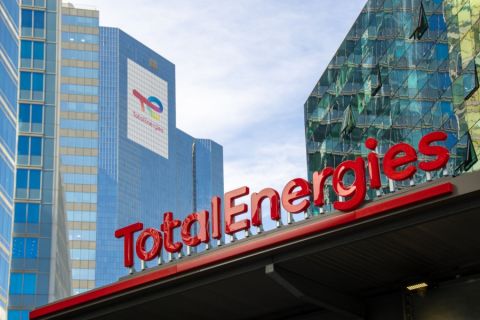Sovereign wealth funds from oil-rich countries in the Middle East are moving to diversify into renewable energy, pushed by regulators and pledges on climate change, but are stopping short of following Norway in shedding some oil and gas investments.
Total sovereign wealth fund investments within the oil and gas industry have dwarfed those within renewable energy in the past decade.
But data on private equity investments with sovereign wealth fund participation suggests this balance might be shifting. In 2018, $6.36 billion went into hydrocarbons, compared to $5.81 billion in renewable energy, one of the narrowest margins in the past decade, according to PitchBook, a data and research firm.
Data on sovereign wealth fund investments via the stock and bond markets are harder to interpret as many of the funds do not disclose such information.
For an interactive version of the below chart, click here https://tmsnrt.rs/2WmelIx.
Norway's trillion-dollar sovereign wealth fund, the world's biggest, said last month it would sell its stakes in oil and gas explorers and producers. But the fund also said it would still invest in energy firms that have refineries and other downstream activities, such as Royal Dutch Shell and ExxonMobil.
The money in Norway's fund comes from the country's hydrocarbon wealth and the fund said its investment plan would make it less vulnerable to a permanent drop in oil prices, which have tumbled more than 40% between now and its most recent peak in June 2014.
For an interactive version of the chart below, click here https://tmsnrt.rs/2WoKejT.
But other sovereign wealth funds from oil-rich countries are not expected to do the same, sources close to the funds and analysts said.
"I don't expect many fiduciary bound investors to follow suit until such a time it can be shown that this divestment activity does not harm returns," Ashby Monk, executive director, global projects center at Stanford University, said. "It would make sense from a national balance sheet perspective for some of these investors to diversify, but they don't think in terms of national balance sheets," he said.
Instead of pursuing a strategic approach to design a portfolio taking into account the country's national wealth, both natural resources and financial, funds are often pushed to focus only on commercial and financial interests, he said.
Many sovereign funds voluntarily commit to the Santiago Principles, a set of guidelines agreed in 2008 to govern how sovereign wealth funds operate. This includes investing based on the basis of economic and financial risk and return related considerations.
While most sovereign wealth funds follow the principles, Norway, one of the few oil funds from a democracy, is considered an outlier in its approach, operating under ethical guidelines set by parliament.
"Culturally, they're different," said one person close to the fund, referencing its relative transparency in comparison to other funds and exclusion of investments in certain companies for ethical reasons.
Abu Dhabi Investment Authority (ADIA), the second largest oil-based fund in terms of assets after Norway, invests in oil and gas stocks only in line with their weightings in equity indices, according to people familiar with its strategy.
It has no plans to change its portfolio based on what Norway has done, said one of the people.
Recommended Reading
Deep Well Services, CNX Launch JV AutoSep Technologies
2024-04-25 - AutoSep Technologies, a joint venture between Deep Well Services and CNX Resources, will provide automated conventional flowback operations to the oil and gas industry.
EQT Sees Clear Path to $5B in Potential Divestments
2024-04-24 - EQT Corp. executives said that an April deal with Equinor has been a catalyst for talks with potential buyers as the company looks to shed debt for its Equitrans Midstream acquisition.
Matador Hoards Dry Powder for Potential M&A, Adds Delaware Acreage
2024-04-24 - Delaware-focused E&P Matador Resources is growing oil production, expanding midstream capacity, keeping debt low and hunting for M&A opportunities.
TotalEnergies, Vanguard Renewables Form RNG JV in US
2024-04-24 - Total Energies and Vanguard Renewable’s equally owned joint venture initially aims to advance 10 RNG projects into construction during the next 12 months.
Sitio Royalties Dives Deeper in D-J with $150MM Acquisition
2024-02-29 - Sitio Royalties is deepening its roots in the D-J Basin with a $150 million acquisition—citing regulatory certainty over future development activity in Colorado.





